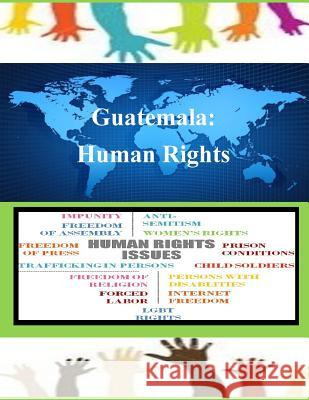Guatemala: Human Rights » książka
Guatemala: Human Rights
ISBN-13: 9781502852915 / Angielski / Miękka / 2014 / 32 str.
Guatemala: Human Rights
ISBN-13: 9781502852915 / Angielski / Miękka / 2014 / 32 str.
(netto: 56,43 VAT: 5%)
Najniższa cena z 30 dni: 55,53 zł
ok. 13-18 dni roboczych.
Darmowa dostawa!
Guatemala is a multi-party constitutional republic. In November 2011 Otto Perez Molina of the Patriot Party won the presidential election for a four-year term that began in January 2012. International observers considered the election generally free and fair. In some instances civilian authorities failed to maintain effective control over the security forces. Members of the security forces committed human rights abuses. Principal human rights abuses included widespread institutional corruption, particularly in the police and judicial sectors; police and military involvement in serious crimes such as kidnapping, drug trafficking, and extortion; and societal violence, including often lethal violence, against women. Other human rights problems also included abuse and mistreatment by National Civil Police (PNC) members; harsh and life-threatening prison conditions; arbitrary arrest and detention; prolonged pretrial detention; failure of the judicial system to ensure full and timely investigations and fair trials; and failure to protect judicial officials, witnesses, and civil society representatives from intimidation and threats. There were also killings of journalists and trade unionists; sexual harassment and discrimination against women; child abuse, including commercial sexual exploitation of children; discrimination and abuse of persons with disabilities; and trafficking in persons. Other problems included marginalization of indigenous communities and ineffective demarcation of their lands, discrimination on the basis of sexual orientation and gender identity, and ineffective enforcement of labor and child labor laws. The government cooperated with the UN-backed International Commission Against Impunity in Guatemala (CICIG) and took steps to prosecute officials who committed abuses. Impunity, however, continued to be widespread.











